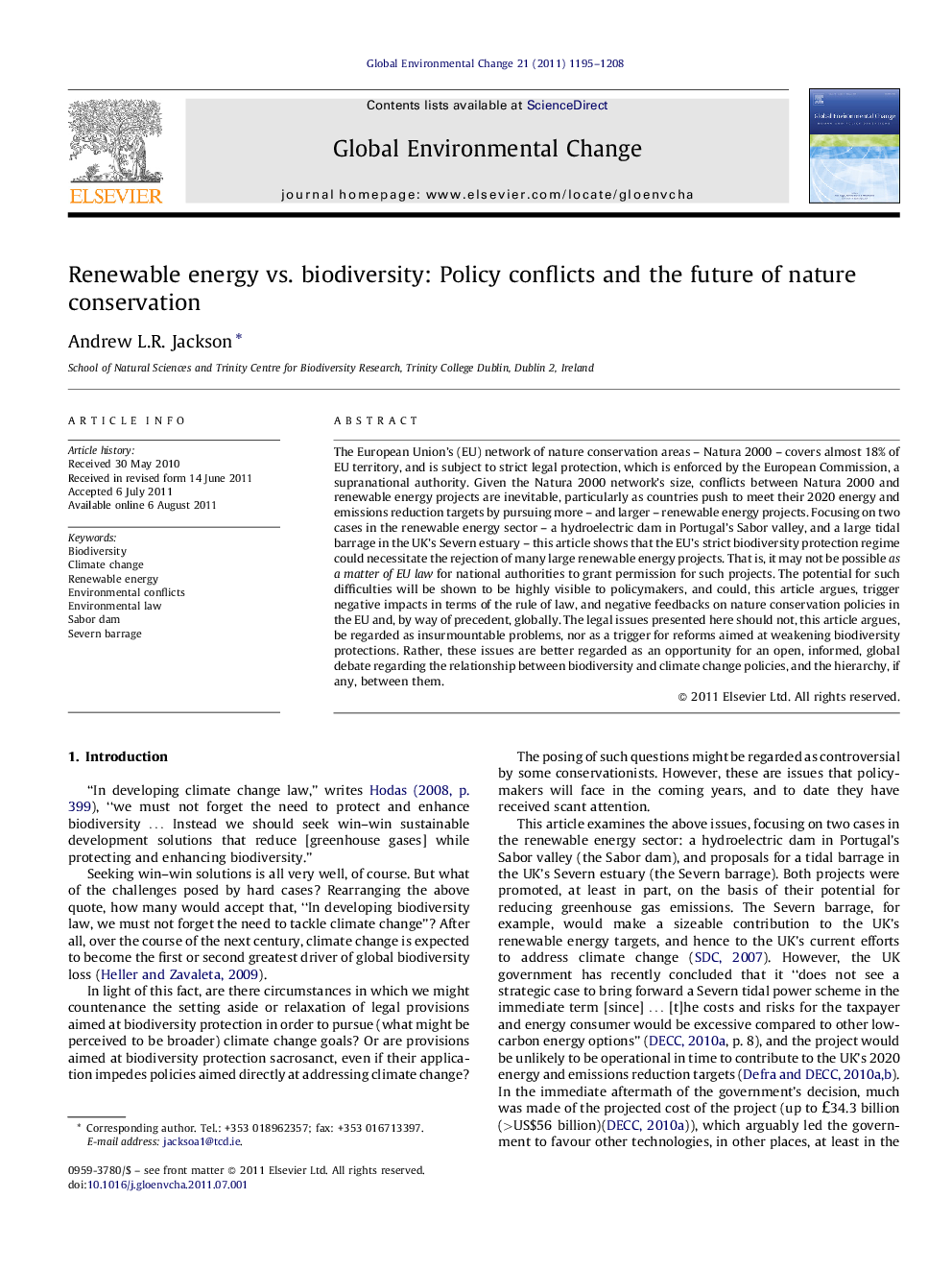| Article ID | Journal | Published Year | Pages | File Type |
|---|---|---|---|---|
| 1054686 | Global Environmental Change | 2011 | 14 Pages |
The European Union's (EU) network of nature conservation areas – Natura 2000 – covers almost 18% of EU territory, and is subject to strict legal protection, which is enforced by the European Commission, a supranational authority. Given the Natura 2000 network's size, conflicts between Natura 2000 and renewable energy projects are inevitable, particularly as countries push to meet their 2020 energy and emissions reduction targets by pursuing more – and larger – renewable energy projects. Focusing on two cases in the renewable energy sector – a hydroelectric dam in Portugal's Sabor valley, and a large tidal barrage in the UK's Severn estuary – this article shows that the EU's strict biodiversity protection regime could necessitate the rejection of many large renewable energy projects. That is, it may not be possible as a matter of EU law for national authorities to grant permission for such projects. The potential for such difficulties will be shown to be highly visible to policymakers, and could, this article argues, trigger negative impacts in terms of the rule of law, and negative feedbacks on nature conservation policies in the EU and, by way of precedent, globally. The legal issues presented here should not, this article argues, be regarded as insurmountable problems, nor as a trigger for reforms aimed at weakening biodiversity protections. Rather, these issues are better regarded as an opportunity for an open, informed, global debate regarding the relationship between biodiversity and climate change policies, and the hierarchy, if any, between them.
► Conflicts between EU biodiversity law and large renewable energy projects. ► Examples: Portugal's Sabor dam and the UK's Severn barrage. ► Potential negative impacts on the rule of law and nature conservation policies globally. ► Alleged political interference in the EU's legal enforcement process. ► Relationship between biodiversity and climate change policies.
